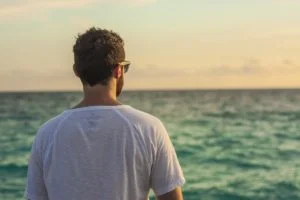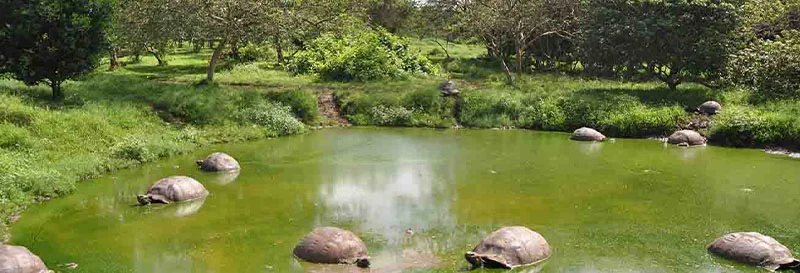
What do you Think Would Happen to the Galapagos Islands without Control Over Tourism? | Travel Blog
Remember that the Galapagos Island is part of Ecuador. Both the mainland and the community on the island are highly dependent on tourism. Further, most of the people deem regular visits from outsiders as a source of stable livelihood all through the year.
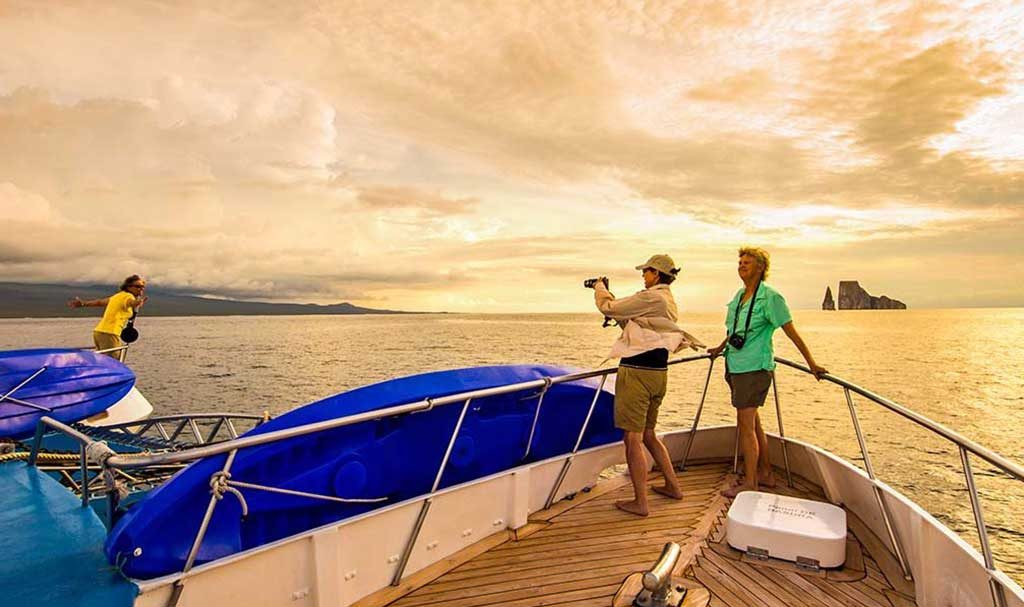 The country’s economy has done well by initiating many different tourist campaigns, which should mean that their agendas should prioritize increasing tourism in the region every year. However, a couple of years ago, the Galapagos Islands created a limit to the number of tourists it would let into the islands at a time.
The country’s economy has done well by initiating many different tourist campaigns, which should mean that their agendas should prioritize increasing tourism in the region every year. However, a couple of years ago, the Galapagos Islands created a limit to the number of tourists it would let into the islands at a time.
Why? The answer is simple.
The Galapagos is like no other place on the planet. You get to interact with friendly giant tortoises, crested black iguanas, and breathtaking marine life. People who have never been there want to make it a part of their year’s vacation trip. The only problem is a lot of people are trying to book a cruise to the Ecuadorian islands, and Galapagos may be full by the time you get there.
Ecuador has already turned away millions of tourists ever since it authorized the limit. Preserving both the islands and its lush, unique life while also maintaining the industry a lot of the locals rely on, is a challenge.
The cap on the number of tourists is not the only strategy the government has employed to protect the area. The National Park of the Galapagos was made so as to protect 97% of the land surface of the island. The Archipelago is classified as a UNESCO World Heritage Site. On top of this, there is also a Marine Reserve to create a safe and interactive environment for tourists. Tourists can get to know the sea creatures better in these interactive settings.
What Happens without the Measures
Sure, tourism brings in a lot of money for the people, but it also comes with a lot of negatives.
Pollution
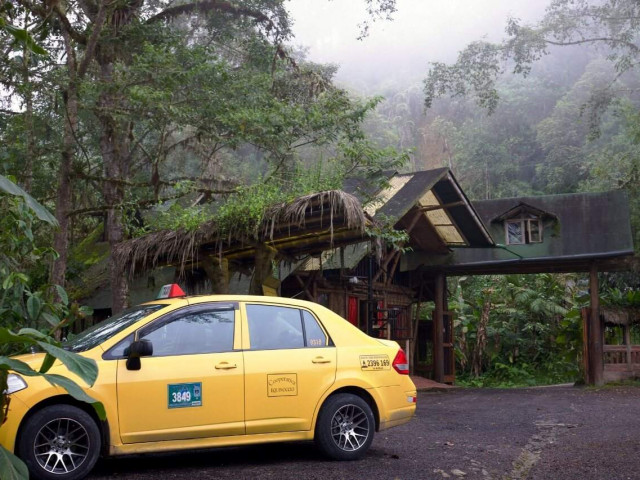 Air pollution is probably the biggest reason why tourism needs to be controlled at the Galapagos. Every year the number of vehicles seems to be growing. The fumes from these vehicles are threatening the natural habitat of the Galapagos. For example, it looks as if there is a taxi accommodating a tourist everywhere you look.
Air pollution is probably the biggest reason why tourism needs to be controlled at the Galapagos. Every year the number of vehicles seems to be growing. The fumes from these vehicles are threatening the natural habitat of the Galapagos. For example, it looks as if there is a taxi accommodating a tourist everywhere you look.
And this is not just cars and trucks. Some airlines fly from Baltra on a daily basis towards the island.
Not Enough Infrastructure
Another reason is that the Galapagos are unable to keep up with the infrastructure demands of the tourists. The number of tourists that visit the island is quite fascinating, however, the appropriate infrastructure needed to cater to them is still under development. This means that the islands are not ready to host guests.
Some would argue this leads to a bad example of tourism for the people who visit the Galapagos for the first time, and that the Galapagos is not able to benefit from tourism as much as it would if there was better infrastructure.
Not Able to Meet Requirements of the Tourists
Most tourists book a cruise before doing anything else when they need to visit the Galapagos. This is because a cruise package not only lets you see all the coastal sites of the islands but also includes activities on the Galapagos that you do not want to miss. By opting for cruises, which almost everyone does, all the provisions on that vessel are usually purchased from local island stores, before the yacht leaves the port. Why is that important? Well, it means that guests on the Galapagos are indirectly engaging in commerce on the islands, and are benefitting the Galapagos community either directly or indirectly.
Similar to this is the tourists relying on the local people for meals and lodging. What happens then is that the local farmers and fishermen are not able to keep up with the requirements of the tourists who are more significant in numbers than the local people.
Regulating the supply chain is very important. Did you know that if proper care is not taken, some supplies may bring in certain insects unknowingly that eat away at the plantation or spread disease? There is this, as well as the effects of intrusive species that arrive from the mainland, such as dogs and rats that run rampant on the urban dwellings. These are two things that can be controlled by controlling tourist activity on the islands.
Cheap Hotel Rates and Compromising Service
When the number of tourists was booming, there seemed to be a lot of emerging businesses. The government was concerned about the cheap rates the competing hotels were ready to offer their services for, which meant they were prepared to take on environmentally damaging practices and products to accommodate the guests. This was only damaging the island even more. For this reason the Ecuadorian government decided to cap the amount of hotels and implement strict protocols.
Driving Away the Community
The locals had started to grow up and move out. If you have ever been to the Galapagos, you will remember seeing young children in blue and white school uniforms. There are always more children than adults, and this is because they grow up to move away as the island gets just too crowded for them. If sustainable tourism has to flourish, it cannot drive out the local communities.
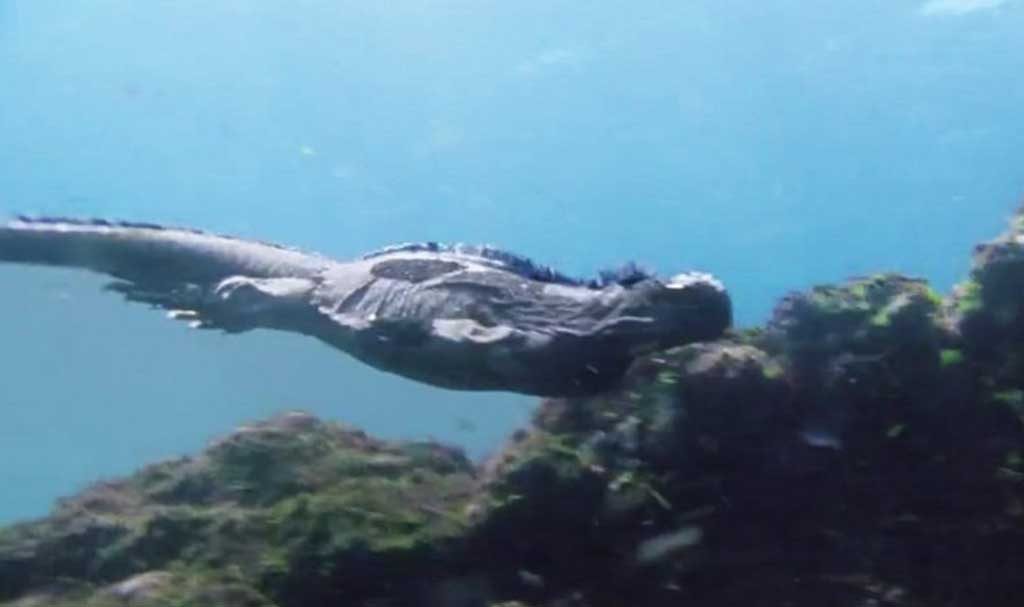 The Director of the National Park, Walter Bustos, said that the action plan for the environment is to preserve the unique biodiversity of the area as well as the social fabric of the communities by managing tourism through supply and not demand.
The Director of the National Park, Walter Bustos, said that the action plan for the environment is to preserve the unique biodiversity of the area as well as the social fabric of the communities by managing tourism through supply and not demand.
According to discoveringgalapagos.org tourist satisfaction rate of the islands has decreased since 1990. This is both in terms of wildlife and the overall scenic beauty. The site also reports that almost all hotel based tourists complain that the islands are too crowded with people. The first limit ever to be placed on the National Park was 12000 visitors a year in 1968. In the 1980s, this was revised to 25000 a year. 2015 saw more than twice that number of visitors in the archipelago.
The truth is, the Galapagos Islands are nowhere close to planning a future where it caters to millions of tourists every year. Which means this restriction is not temporary. For many years the authorities have worked towards limiting urban construction on the islands.
They have been trying to discover and promote ways of renewable energy sources on the islands. With the limited number of people who do get to visit the islands, the authorities are also trying to make electric vehicles the norm as it will be in the future everywhere else. The leaders of the islands are moving to embrace more sustainable practices and have already banned plastic bags, straws and all forms of reusable plastic.
Other examples of this sustainable practice are in Baltra, which is the main port of entry for many tourists. You may notice that airports such as Baltra operate entirely on wind and solar power.
While these changes are slowly being implemented, it is essential to note that the local governments must continue to make progress in sustainable practices. An aggressive profit-making path can destroy the entire ecosystem and leave the Galapagos as less of a sight to see.
Thankfully, progress is being made and local leaders and global leaders are looking at ways to collaborate and preserve the magical islands.
If you’re ready to travel, click here to choose your trip.
Need more info? Check out our blog.
Check Our Suggested Tours:
- Wild Galápagos Escape
- Galapagos West Islands 6 days cruise Itinerary on board Ocean Spray
- Eastern Galapagos Explorer 8-Day Cruise from San Cristóbal
- Itinerary 6 Days Cruise Western & Central Islands
- Santa Cruz cruise provided by Voyagers Travel
- Galapagos 8 day southern islands cruise on board the Endemic
Check Our Galapagos Cruises:
